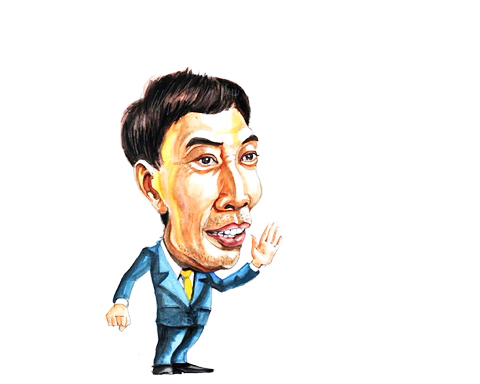The possibility that the country's economic growth could fail to meet the target cannot be ruled out and it will be harder for the Government to take measures to both stabilise the economy and boost growth. The challenges require the Government to implement fiscal and monetary policies in a wiser manner.

Better-than-expected economic performance helped Viet Nam's GDP growth in the second quarter of the year reach 7.72 per cent year on year, the highest since 2011, according to the General Statistics Office.
GDP in the first six months of 2022 jumped 6.42 per cent, higher than the growth rate of 2.04 per cent in the same period of 2020 and the H1 growth rate of 5.74 per cent in 2021.
The country's socio-economic development in the first six months of 2022 prospered in most industries and fields, especially the processing and manufacturing industry, retail sales of consumer goods and services, and exports.
Industrial production grew quite well because production and business activities of enterprises gradually recovered. The industrial production index increased by 8.7 per cent over the same period last year. Total retail sales of consumer goods and services reached VND2.717 quadrillion, up 14.4 per cent compared to the first six months of 2019 - the year before the COVID-19 pandemic.
The lifting of COVID-19 restrictions in the country, reopening borders and international tourism activities have created new vitality in Viet Nam's service sector. The strong recovery of the accommodation and food service industry must be mentioned as it surged 25.92 per cent while art and entertainment activities increased by 14.01 per cent.
In the six-month period, total import and export turnover of goods reached US$371.17 billion, up 16.4 per cent over the same period last year. Exports rose 17.3 per cent and imports were up 15.5 per cent.
Along with that, the Government's policy of socio-economic recovery and development has created confidence for the people and the business community. From January to June, the country saw 76,200 newly registered enterprises, up 13.6 per cent compared to the same period of the last year.
The average consumer price index in the first six months of this year increased by 2.44 per cent over the same period last year. Domestic prices are still basically under control because the Government has drastically directed ministries, sectors and localities to synchronously implement solutions to stabilise prices and limit negative impacts on socio-economic development.
With such macroeconomic highlights, it seems that the Vietnamese economy is on course to surpass its 2022 growth target of 6.0 - 6.5 per cent. Recently, the Singapore-based United Overseas Bank (UOB) revised up its 2022 GDP growth forecast for Viet Nam to 7 per cent from 6.5 per cent.
The optimistic projection is based on the strong set of data in the second quarter of 2022 and a historical track record of robust performance in the second half of the year.
Besides that, it is expected that an economic recovery package worth $15 billion will be implemented and disbursement of public investment will speed up in the rest of the year. The Government plans to fully disburse allocated funds for this year and punish any violations in delays or issues with slow disbursement of public funds.
In addition, despite a drop in total Foreign Direct Investment (FDI) lured in the first five months of this year, FDI disbursement is forecast to continue an upward trend in the period. According to the Ministry of Planning and Investment, up to $7.71 billion worth of FDI was disbursed from January to May, up 7.8 per cent year on year.
However, it is necessary for us to be vigilant and take a cautious approach as there are still so many difficulties ahead which stem from both the country's internal weaknesses and the external environment.
In the coming months, the world commodity market will likely continue to have many fluctuations and be influenced by economic and political factors. As the supply of raw materials has been significantly interrupted, commodity prices on the international market have tended to increase sharply.
In addition, the war between Russia and Ukraine has pushed up the prices of raw materials, especially fuel. The circulation of goods in some markets will likely be affected, leading to shortages of some items such as food, medicine, fertiliser, medical equipment and information technology equipment in the global supply chain, thereby causing spillover effects on production costs in many industries and fields.
Construction of a number of State budget-funded projects is still slow due to various problems. The shortage of workers still persists in some sectors as a consequence of the pandemic, especially among highly qualified and skilled workers.
On the other hand, global growth prospects have weakened significantly amid the war in Ukraine, amid rising energy, food and commodity prices, soaring inflation and tightening monetary policy stances by major central banks. Many organisations have revised down their global growth forecasts.
According to a United Nations' report on the world economic situation and prospects for 2022 issued on May 18, the world economy is projected to grow by 3.1 per cent in 2022, marking a downward revision of 0.9 percentage points from our previous forecast released in January 2022.
In particular, growth forecasts for the United States, European Union and China –major trading partners of Viet Nam – have been revised downward, with the European Union registering the most significant downward revision. The European Union economy – most directly hit by disruptions in the energy supply from the Russian Federation – is now expected to grow by 2.7 per cent in 2022, down from 3.9 per cent expected in January. The United States economy is expected to grow by 2.6 per cent, while China is expected to grow by 4.5 per cent in 2022.
Economists believe that the broad-based slowdown of the global economy will undermine a full, inclusive and sustainable recovery from the pandemic. This slowdown, and the war in Ukraine – triggering sharp increases in food and fertiliser prices – will hit developing countries particularly hard, exacerbating food insecurity and increasing poverty. Monetary tightening by the developed countries will increase borrowing costs, undermine debt sustainability, and further constrain the fiscal space to support a full recovery of developing country economies.
In its Global Economic Outlook report, dated June 7, 2022, the World Bank (WB) reduced its global growth forecast for 2022 from 4.1 per cent to 2.9 per cent. Meanwhile, on June 8, 2022, the Organization for Economic Co-operation and Development (OECD) forecast that global GDP will grow by 3 per cent in 2022, down sharply from the 4.5 per cent forecast made in December 2021.

Given this global backdrop, we cannot rule out the possibility that the country's economic growth could fail to meet targets and that it will be harder for the Government to take measures to both stabilise the economy and boost growth. These challenges require the Government to implement fiscal and monetary policies in a wise manner.
Specifically, the Government must be flexible in managing money supply through changing credit limits for commercial banks while curbing interest rate hikes to a level that people and enterprises can absorb.
Though our foreign exchange reserve condition is good enough to maintain FX market stability, we must still follow closely the developments of the forex market to prevent a substantial exchange rate pass-through – the effect of exchange rate changes on domestic prices in an open economy – especially given the country still depends on material imports.
At the same time, we must decrease the pace of price increases by reducing taxes on petroleum, as this is an important input that affects every sector of the economy.
Finally, the investment environment needs to continue being improved to attract FDI and legal mechanisms for public investment disbursement need to continue being fine-tuned to accelerate the process.
*Vo Tri Thanh is a former vice-president of the Central Institute for Economic Management (CIEM) and a member of the National Financial and Monetary Policy Advisory Council. The holder of a doctorate in economics from the Australian National University, Thanh mainly undertakes research and provides consultation on issues related to macroeconomic policies, trade liberalisation and international economic integration. Other areas of interest include institutional reforms and financial systems.





